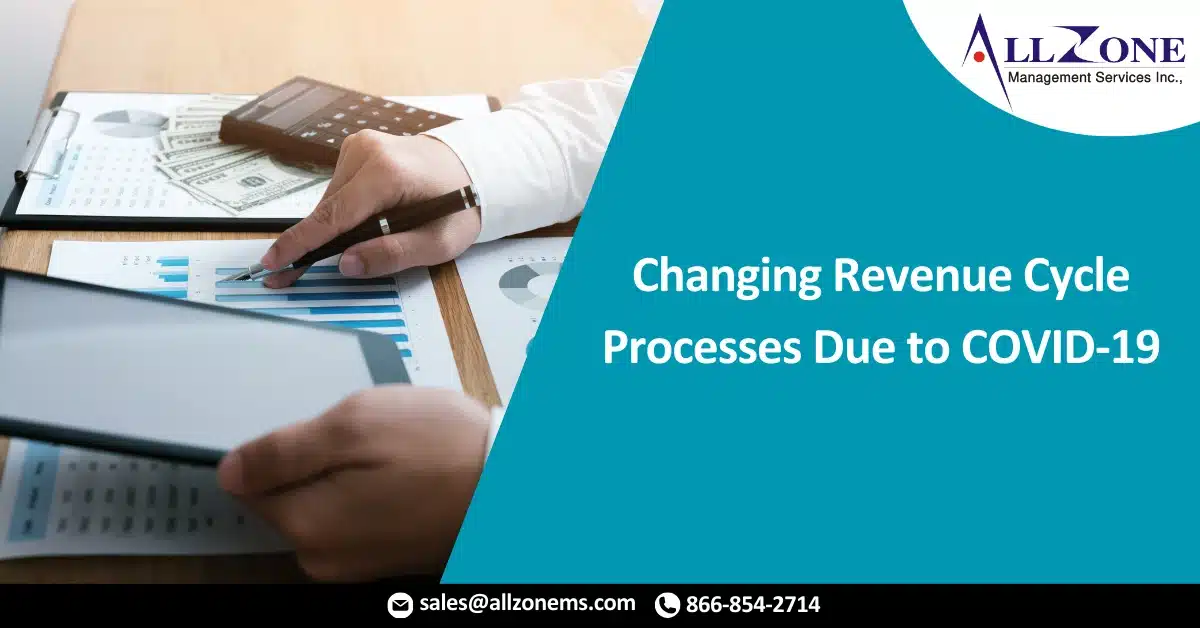As an effort to understand what changes hospitals are making in response to COVID-19, HBI is currently surveying revenue cycle professionals on how their organizations have altered, might alter, or will not alter revenue cycle processes. The following are highlights of HBI survey results as of April 3, 2020. We will continue to update these results on an ongoing basis.
Key Takeaways
Scheduling and registration processes are the most affected revenue cycle activities so far, with staff being pulled from other areas of the revenue cycle to assist. Face-to-face patient interactions are being shifted to remote workflows as much as possible, such as registration over the phone.
Pre-service and point-of-service collections have been affected due to lower volumes of scheduled services as health systems free up capacity in expectation of COVID-19 patients. In fact, many organizations have suspended point-of-service collections entirely. Others are restricting point-of-service collections only to patients presenting for reasons other than COVID-19. Where the volume of COVID-19 patients rises, this tiered approach could be suspended in favor of expediency and simplicity for staff.
Financial assistance processes are being adjusted to limit face-to-face contact with patients. Eligibility has not yet been significantly adjusted, but revenue cycle leaders are researching options for doing so. HBI expects to see further adjustments in this area as COVID-19 testing and diagnoses increase, prompting a delayed uptick in charity care write-offs.
Internal billing and collections processes are being adjusted to allow delayed payments from affected patients, and collection agency processes are being point-of-service altered to suspend credit reporting/legal action and to provide temporary deferment. HBI expects to see further adjustments in this area as COVID-19 inpatients are discharged and charges begin to drop more regularly for COVID-19 care.
Expect % of A/R over 90 days to begin a steady upward trend. Many organizations are delaying sending accounts to collections (both early out and bad debt) and providing payment plan extensions. Expect to see a related dip in
cash collections % net revenue as collections slow and in bad debt write-offs as accounts are held longer. Expect A/R days discharged-not-final-billed to increase. Some organizations are delaying billing of COVID-19 and telehealth charges until they have received more guidance on submitting clean claims.
Remote work is increasing in all areas of the revenue cycle, with staff in the business office, mid-cycle, and support roles such as training and analytics being sent home at a higher rate than other areas. Note that the survey tracks the increase in remote work without data on how many staff were working remotely before COVID-19. The effects of remote work and its heavy reliance on technology could be seen in increased A/R days and aging and cost to collect later this year.
Revenue Cycle Process Changes
Below is a summary of respondents that said they have altered the following processes in response to COVID-19 as of April 3, 2020.
- 80% have altered scheduling
- 78% have altered registration
- 44% have altered pre-service and point-of-service collections
- 17% have altered financial assistance
- 17% have altered patient discounts
- 54% have altered internal billing and collections
- 27% have altered payment plans
- 15% have altered early-out agency activity
- 27% have altered bad debt agency activity
For More Information: https://www.healthcarebusinessinsights.com/blog/revenue-cycle/hospitals-changing-revenue-cycle-processes-due-covid-19/

